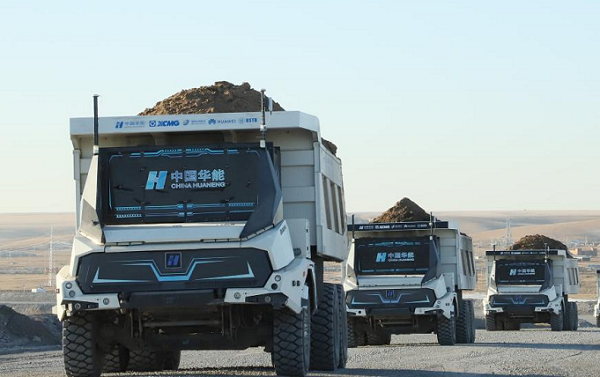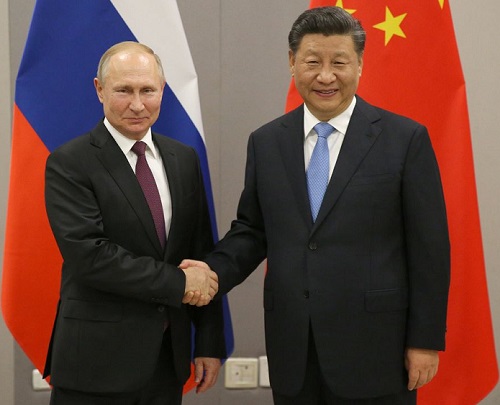by SAVIOUS KWINIKA
JOHANNESBURG – A growing chorus of global citizens, economists, and political analysts are questioning the long-held assumption that the United States remains the world’s dominant economy.
Increasingly, attention has shifted to China, with many experts insisting that Beijing quietly overtook Washington at the dawn of 2025, marking a profound shift in the global economic order.
For decades, U.S. leadership in finance, innovation, and global influence went largely unchallenged.
America’s dominance was reinforced by credit rating giants—Moody’s, Standard & Poor’s, and Fitch—as well as the Bretton Woods institutions, the International Monetary Fund (IMF) and the World Bank, all widely perceived as aligned with Western economic interests.
But critics argue that such institutions no longer reflect today’s realities, describing them as outdated, biased, and resistant to acknowledging the economic rise of the Global South.
The Rise of a New Order
“Over the years the world has entirely depended on IMF, World Bank, and the three leading credit rating agencies,” says Moses Simango, a Mozambican economic scholar based in Johannesburg. “But now there are too many credibility questions about these Western-controlled institutions.”
Simango points to Africa’s response: the establishment of the African Credit Rating Agency (AfCRA) under the African Union (AU).
AfCRA seeks to provide independent, home-grown assessments of sovereign and corporate creditworthiness, countering what many African governments view as unfairly negative or politically motivated ratings from Western institutions.
“The manipulation is clear,” Simango adds. “Emerging economies are deliberately underrated to preserve the illusion of U.S. supremacy.”
His observations echo findings by the Centre for Economics and Business Research (CEBR), which in 2020 predicted that China would surpass the U.S. by 2028. That forecast was later pushed to 2036, but according to Simango and many in the Global South, those timelines are misleading.
“The reality is that China already holds the number one spot,” he insists.
Indicators of China’s Economic Lead
The evidence is increasingly difficult to ignore. By 2020, China led the world in seven out of ten advanced industries, leaving the United States ahead in only three.
Today, China dominates in artificial intelligence (AI), renewable energy, telecommunications, and consumer electronics. Its manufacturing sector, valued at over \$3.7 trillion, surpasses the combined output of the U.S., Germany, South Korea, and the UK.
Equally striking is China’s financial clout. The U.S. government owes an estimated \$14 trillion to China, underlining Beijing’s leverage as both creditor and competitor.
China’s strength lies in its integrated economic model: a vast skilled labor force, efficient infrastructure, and supply chains that dwarf those of any other nation.
This model has propelled the rise of its middle class and transformed the country into the world’s largest exporter, dominating global trade in electronics, vehicles, and machinery.
Voices from Around the Globe
Ordinary citizens and experts alike have joined the debate.
Tony Blair, former UK Prime Minister, predicted back in 2003 that China would become the world’s largest economy within 20–30 years—a timeline that aligns precisely with today’s developments.
Online commentators echo the sentiment. “China is already number one,” says Alex, a global economics enthusiast. “Nominal GDP isn’t the best measure—purchasing power parity tells the real story.”
Arnold Lewis reflects on history: “No one believed China would surpass Japan so quickly. Yet it did, and the same is happening with the U.S.”
Others emphasize the work ethic and governance behind China’s rise. “China doesn’t boast. It just works step by step to achieve results,” notes Celine Liu.
Contrasting Economic Models
China’s modern economic miracle began in the 1980s, when reforms under Deng Xiaoping opened the economy to foreign investment while retaining state-led strategic planning. The result was an industrial powerhouse that lifted hundreds of millions out of poverty.
Today, China’s growth is driven by sectors such as:
Electronics and Information Technology
Automobile Manufacturing
Financial Services and Real Estate
E-commerce and Digital Economy
Energy and Mining
By contrast, the U.S. economy remains heavily service-oriented, with strengths in finance, healthcare, education, and technology, but faces challenges of deindustrialization, stagnant wages, and rising inequality.
“America is still innovative, but it has allowed outsourcing and speculation to weaken its industrial core,” explains Simango.
“China, meanwhile, has built an economy on production and infrastructure—foundations of long-term stability.”
Global Power Shifts
The broader geopolitical implications are profound. BRICS nations—Brazil, Russia, India, China, South Africa, now joined by Egypt, Ethiopia, Indonesia, Iran, and the United Arab Emirates (UAE) — are projected to account for the majority of global gross domestic product (GDP) growth by 2050.
For many in Africa, Asia, and Latin America, this realignment offers hope of a more balanced global system, less dominated by Washington and its allies.
Yet, Western institutions continue to publish rankings that place the U.S. first.
Current IMF estimates put America’s GDP at \$30.5 trillion, compared to China’s \$19.2 trillion. But critics argue that such figures obscure critical metrics like purchasing power parity (PPP), industrial capacity, and debt exposure. On these measures, China increasingly leads.
Looking Ahead
China’s future trajectory appears robust. Investments in green energy, AI, quantum computing, and digital finance position it as the undisputed leader of the Fourth Industrial Revolution.
Meanwhile, the U.S. grapples with political polarization, ballooning debt, and an overreliance on its dollar-based financial system, which some economists believe will erode as more countries pursue trade in local currencies.
As one observer, Roger Dowler, bluntly put it: “They’re being polite by calling China number two. In reality, it’s number one.”
Conclusion
The debate over whether China has officially overtaken the United States is less about numbers than about credibility.
For citizens of the Global South—long frustrated by Western dominance of economic narratives—the shift feels undeniable. China’s rise is not a forecast but a lived reality, reshaping trade, investment, and power dynamics across continents.
Whether the West acknowledges it or not, the global economy in 2025 looks very different from the post–World War II order.
As the U.S. clings to old structures, China appears to have already secured its place at the top.
– CAJ News



